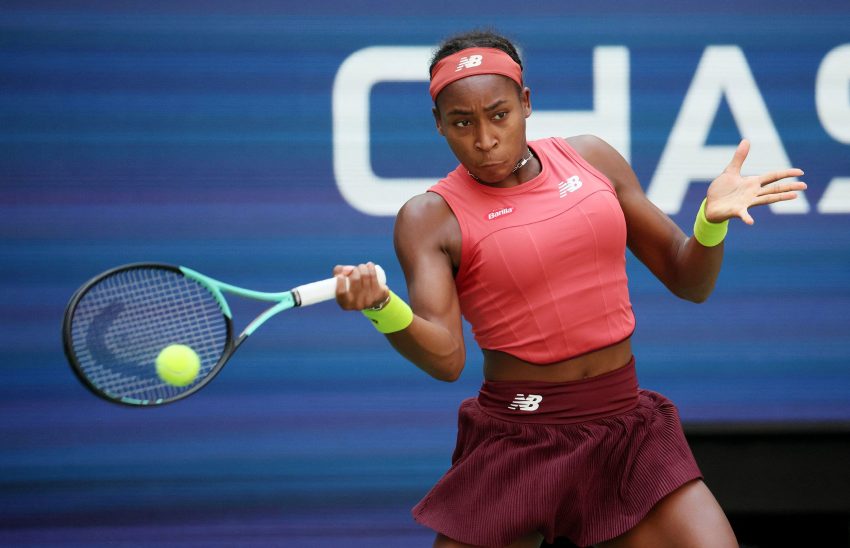Coco Gauff, one of tennis’s brightest stars and a staunch advocate for social justice, recently shared her candid thoughts about participating in the 2024 WTA Finals in Riyadh, Saudi Arabia. The decision to host the prestigious event in a country often criticized for its human rights record has sparked significant debate. Gauff, known for her articulate advocacy and bold stances on social issues, admitted to having reservations about the location but also saw potential for progress and change through sport.
The Controversy Around the WTA Finals in Saudi Arabia
The WTA’s decision to move its season-ending Finals to Saudi Arabia came as part of a three-year agreement with the Saudi Tennis Federation. While it marked a milestone as the first professional women’s tennis event in the kingdom, it also attracted criticism from human rights advocates and some players. Concerns centered around Saudi Arabia’s restrictions on women’s freedoms, LGBTQ+ rights, and freedom of expression.
Despite the criticism, WTA officials justified the move by emphasizing the opportunity to expand the sport in an untapped market. The event was also part of a broader initiative to increase access to tennis for Saudi women and promote equality through sports.
Coco Gauff’s Initial Concerns
In a recent interview, Gauff revealed her mixed feelings about participating in the event. “I’d be lying if I said I had no reservations about coming here,” the 20-year-old star admitted. Her concerns were rooted in the country’s track record on human rights and the symbolic significance of the WTA Finals as a platform for empowering women.
However, Gauff also saw the event as an opportunity to challenge stereotypes and foster understanding. “Sport has a unique way of opening doors. If change is going to happen, it has to start somewhere, and I believe events like this can help spark that change,” she said.
A Measured Approach
Before committing to the event, Gauff engaged in discussions with other players, WTA officials, and local representatives, including Princess Reema bint Bandar Al Saud, Saudi Arabia’s first female ambassador to the U.S. Gauff emphasized the importance of transparency and the need for meaningful initiatives beyond the tournament itself.
“I wanted to ensure that we weren’t just showing up to play tennis without leaving something behind,” Gauff explained. Her insistence on a plan for community engagement reflects her commitment to using her platform for good.
Tennis as a Catalyst for Change
Gauff’s participation highlights the growing belief that sports can act as a vehicle for cultural exchange and societal progress. While acknowledging the challenges, she pointed out that visibility and representation could help shift perceptions. “By being here, we’re showing young girls that they can dream big, no matter where they’re from,” she said.
The WTA has pledged to support programs such as the Future Stars initiative, which aims to introduce tennis to one million Saudi girls by 2030. Such efforts, combined with the visibility brought by hosting global events, have the potential to inspire a new generation of athletes and change-makers.
Gauff’s Role as a Leader
At just 20 years old, Gauff has emerged as a leader both on and off the court. Her maturity and willingness to address uncomfortable topics have made her a role model. From speaking out against racial injustice to advocating for gender equality, Gauff consistently uses her platform to highlight important issues.
In Riyadh, Gauff carried this same ethos. She urged fellow athletes and stakeholders to hold the WTA and local organizers accountable for their promises. “It’s not enough to play here. We have to ask the hard questions and make sure real progress is being made,” she said.
Mixed Reactions from Fans and Critics
While Gauff’s approach has earned her praise for balancing advocacy with participation, others remain skeptical. Critics argue that Saudi Arabia’s investments in sports are part of a broader “sportswashing” strategy, aimed at improving its global image without addressing underlying issues.
Gauff acknowledged these concerns but maintained her belief in the power of sports to bridge divides. “I understand the criticism, and I respect those who chose not to come. But I felt this was an opportunity to be part of a conversation that could lead to positive change,” she said.
Looking Ahead: Gauff’s Vision for the Future
As the tournament concludes, the question remains whether the WTA Finals in Saudi Arabia will leave a lasting legacy. For Gauff, the answer lies in sustained efforts to promote inclusion and equality in sports and beyond. She urged her fellow athletes and the tennis community to remain engaged and vocal about their values.
“This isn’t just about one tournament or one country. It’s about setting an example for how sports can drive change everywhere,” Gauff concluded.
Final Thoughts
Coco Gauff’s participation in the 2024 WTA Finals in Riyadh underscores the complexities of using sports as a platform for advocacy. Her willingness to confront uncomfortable realities while striving for progress exemplifies the role athletes can play in shaping a better world. As Gauff continues to rise as a star on the court, her impact off the court is equally significant, reminding us that sports are about more than just competition—they are a force for connection, understanding, and change.
